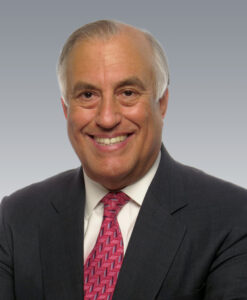According to Dr. Steven Reisman, one of the best cardiologists in New York City and the Director of the New York Cardiac Diagnostic Center, obesity and overweight affect greater than 60% of the United States public. It is estimated that the United States government spends in excess of $200 billion per year on obesity-associated conditions and diseases.

Obesity is the result of an accumulation of excess body fat. Obesity is not just excess body weight because overweight can occur from either muscle or fat deposition. Diet composition can affect the relationship between total body fat and body weight. Obesity-related medical conditions may be associated with an accumulation of excess fat while increased muscle mass is beneficial because of its positive effect on metabolism.
There is a large body of scientific evidence that indicates that protein is the most satisfying of the macronutrients. High protein diets providing 25% of total energy compared to diets with low protein may lead to greater weight loss. Reduced total caloric intake with an increase in the intake of low-fat protein-rich foods may result in more successful weight loss in the long term secondary to the effects on resting energy expenditure.
It is possible that patients who exercise and eat adequate protein may build lean body mass more efficiently than those who are on a low protein diet. Because muscle weighs more than fat per unit of volume it is possible for patients to gain weight with muscle mass while reducing weight circumference and overall fat.
In addition to a healthy long term diet, it is important to increase the proportion of omega-3 fats, increase the intake of colorful fruits and vegetables, and limit the intake of refined carbohydrates from soft drinks, cookies, cakes, pastries, candies, and many processed foods with both hidden fat and sugar. In addition, physical activity is important along with behavioral interventions including self-monitoring stimulus control, stress reduction, and social support that may be helpful in weight loss.
Clinicians should consider evaluating a patient’s overall fatness rather than simply by measuring body weight or body mass index and concentrate on the potential complications of excessive fat accumulation. The goals for the treatment of obesity should involve fat reduction rather than simply weight loss, along with a better understanding of nutrition.
Dr. Steven Reisman director of New York Cardiac Diagnostic Center, premier cardiology center, and a leading cardiologist doctor in New York City advocates and promotes a healthy lifestyle in the prevention of heart disease and the reduction of obesity.

Dr. Steven Reisman is an internationally recognized cardiologist and heart specialist. He is a member of the American College of Cardiology, American Heart Association, and a founding member of the American Society of Nuclear Cardiology.
Dr. Reisman has presented original research findings for the early detection of "high risk" heart disease and severe coronary artery disease at the annual meetings of both the American College of Cardiology and the American Heart Association. Dr. Reisman was part of a group of doctors with the Food and Drug Administration who evaluated the dipyridamole thallium testing technique before the FDA approved it.
Dr. Steven Reisman's academic appointments include Assistant Professor of Medicine at the University of California and Assistant Professor at SUNY. Hospital appointments include the Director of Nuclear Cardiology at the Long Island College Hospital.



